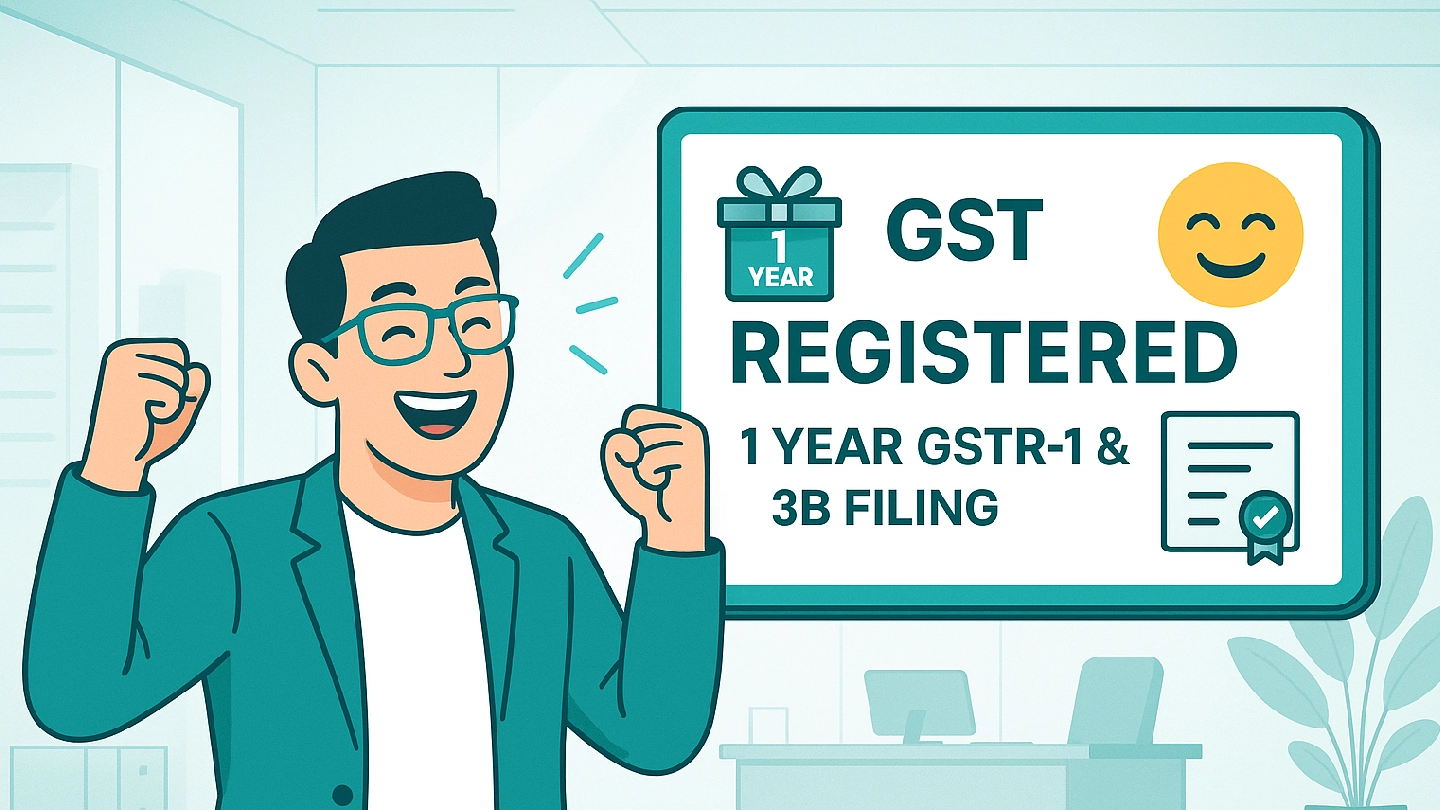
GST Registration with 1 Year Return Filing (GSTR-1 & 3B) Services
Complete GST solution by expert CAs including new registration and full year return filing services. Our team handles GST registration process, documentation preparation, and manages monthly GSTR-1 & GSTR-3B filing for entire year. We ensure smooth registration approval, consistent compliance management, ITC optimization, and penalty-free GST operations with comprehensive annual support.
Key Benefits:
- Complete GST registration process
- Full year return filing included
- Monthly compliance management
- ITC optimization throughout year
- Comprehensive GST solution
Get complete GST solution from registration to annual compliance with our expert services.
